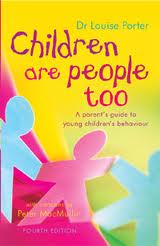Children’s Behavior and Food Intolerance Symptoms
Is your child throwing tantrums all the time?
Are they having trouble concentrating in school?
Is your toddler irritable or not settling to sleep?
Are they simply driving you nuts most of the time?
Are you considering that your child is suffering from Oppositional Defiance?
These are all possible signs of food intolerance symptoms and they are displayed through children’s behavior and their health.
For FAST results, remove additives and preservatives from the family diet or lifestyle. Click here to get your copy of a book that has a food additives list you can use when you go shopping. I have mine in my purse for ease of access when shopping.
 It’s not Attention Seeking
It’s not Attention Seeking
Often times parents can feel confused and think that children’s behavior is a result of the child just wanting attention, that they have psychological hang ups or that they are just tired.
Children suffering from food intolerance symptoms or food problems are not trying to gain the attention of the parent or displaying irritating behavior on purpose, their system is simply effected by food. Sometimes too, children’s behavior does indicate that they are just plain tired.
When children’s behavior is linked to food intolerance symptoms, and it is constant, it can be emotionally and physically draining. From the child’s perspective they may feel constantly irritated because of their food intolerance symptoms. Hence, what you need as a parent or carer are some positive tips to deal with children’s behavior.
Children’s Behavior and Positive Parenting
 Before I begin just let me say that the following comments are not a criticism of those of you that use specific language to raise your children. I was taught that we can only do the best we can until we learn of a better way of doing something.
Before I begin just let me say that the following comments are not a criticism of those of you that use specific language to raise your children. I was taught that we can only do the best we can until we learn of a better way of doing something.
What is important though is that we do take action when we have been shown better alternatives. I hope my message in this post will help you to change the way you choose to deal with children’s behavior.
I’ve never been one to endorse using the word naughty and in fact, every time I hear the word naughty, it makes me cringe on the inside.
My belief is that children do not learn anything by being called naughty or any other label related to the child or their behavior. Labeling or name calling doesn’t guide children as to what they have done wrong or provide a more appropriate action.
All it does is damage their self-esteem because you are basically calling them a name that is linked to negative connotations. I know that sounds very blunt but that quite simply is what is happening when children are labeled rather than taking action to guide children’s behavior.
I have also taught my children from a very young age that when someone calls a child ‘naughty’, what they actually mean is that the child in question just needs guidance to do the right thing.
child in question just needs guidance to do the right thing.
The problem is that the word ‘naughty’ is rampant on TV, in books, used by well meaning parents and the community. So, sometimes my own children have used the word ‘naughty’ because it seems the rest of society feels it is ok to label children and not use guidance with children’s behavior as an alternative.
Even so, I have heard my children correcting each other or themselves on occasion if they have used the word naughty.
Remember, what we teach our children is what they will pass on through to the next generation and how they will deal with their own children’s behavior. So please give some thought to how you speak to your children or grand children.
The word ‘no’ is also used indiscriminately. ‘No’ is a word that does have a place, especially if a child is in danger. If ‘no’ was used appropriately then more children would listen more readily when it was spoken.
Positive parenting involves guiding children’s behavior using appropriate language about the behavior, not the child. This might also involve showing the child or modelling through your own actions.
5 Tips for dealing with children’s behavior
Some ideas for changing your parenting style and having a positive impact on children’s behavior are listed below:
1. Always guide children’s behavior and stop labeling the child.
Little Mary is throwing toys around.
Parenting tip:
“Mary, can we play with that together on the floor?” (encourage positive play using the toy by showing the child how to use it).
Or
“Mary, throwing your toys could hurt someone, tell me a better way you can play with that”.
If this behavior persists then you will need to let the child know that you need to remove the toy so that other people can be safe, and sit with the child until they have calmed down enough to cease the behavior. After all, it is not acceptable to be throwing things around and potentially harm others or themselves. Talk about a positive action or change what you are saying to let the child know what they should be doing; not what they shouldn’t be doing.
The second statement to this parenting tip is not punishment but guidance. Punishment, for example, would be to send the child to their room to be there on their own or telling them that if they continue to throw toys then they will not be able to read their favorite book or play their favorite game (no immediate link to the current behavior). You can always remove a toy they are throwing and redirect them to another activity. This should be done in a calm and inviting manner.
2. Using time out appropriately for children’s behavior
Behavior:
You are out shopping and Little Sam has decided he doesn’t want to continue shopping and starts to throw a tantrum. You are unable to contain him and he is trying to run away.
Parenting tip:
If possible, pick the child up, take them to a quiet spot and stay with them even if they are on the floor thrashing about. Don’t try and negotiate with them as they are out of control of their emotions and are not able to listen when this is the case. Remember, as adults, we can sometimes feel out of control of our own emotions and unable to listen. Children are no different.
 If the child is trying to hurt you then sit them on the ground then sit behind them, put your arms around them and your legs around their legs and stay in this position until they are calm. The only thing you can say is ,”I will stay with you and wait until you are calm”. Then just wait until they calm down because they eventually will. If they stop trying to hurt you or themselves then you can just sit with them. This is not rewarding children’s behavior but simply showing them that you are there when they are having trouble with their emotions. Tantrum times can vary but tend to lessen as time goes on so persistence does pay off. If your partner is around, do a tag team if you are finding this difficult.
If the child is trying to hurt you then sit them on the ground then sit behind them, put your arms around them and your legs around their legs and stay in this position until they are calm. The only thing you can say is ,”I will stay with you and wait until you are calm”. Then just wait until they calm down because they eventually will. If they stop trying to hurt you or themselves then you can just sit with them. This is not rewarding children’s behavior but simply showing them that you are there when they are having trouble with their emotions. Tantrum times can vary but tend to lessen as time goes on so persistence does pay off. If your partner is around, do a tag team if you are finding this difficult.
OR
Just go home if it is too hard. When the child has calmed down, talk to them about their behavior. Sometimes the child might need some quiet play time before you can speak with them as this gives them some emotional space. Remember, if you were feeling out of control of your emotions, would you want someone to sit you in a naughty corner or in a solitary space with the door closed so you could deal with your emotions on your own?
Then, next time you want to venture out shopping, give the child advanced warning about where you will be going and what you will be doing. Ask them what they might be able to help with. i.e. pushing the trolley, helping put groceries into the shopping trolley or holding the shopping list. Children”s behavior will improve if you can get them involved.
3. Use acknowledgment and not praise for children’s behavior.
Behavior:
 It is bedtime and Little Sheree wants to keep playing rather than get ready for bed.
It is bedtime and Little Sheree wants to keep playing rather than get ready for bed.
Parenting tip:
It is always a good idea to use ‘when’ statements rather than ‘if’ because ‘if’ is based on bribery or a controlling style of parenting. In this situation I recommend you use words to the effect of; “Sheree, when you have your pj’s on, we can have a short play and then book and bed’. If she still continues to play then you may need to assist her by getting down on her level, getting her attention (eye contact) and guiding her with the steps. Once she has been able to assist in the process, it is a good idea to provide some acknowledgment. An example off this is, “thank you Sheree, your help with getting ready for bed is appreciated. Now, we have time for a quick play before a book and bed”.
Sometimes it is just a case of letting the child finish up what they were doing and often times they will indicate to you that they are about to finish up an activity. Sometimes this approach is better because it shows you trust what they are saying and it gives them the chance to complete a fun task.
There is a fine line between praise and acknowledgment but it can have such a different impact on children’s behavior, just by selecting words that are acknowledgment based and not reward or praise based. Children need guidance and acknowledgment provides the best form of guidance and feedback.
I always found it useful to keep a chart on the wall as a reminder of the best ways to acknowledge children’s behavior so I could change my own behavior which was once based on providing praise. We are raised to believe that saying “good girl” , “good boy”, “you’re clever”, “you’re great for helping” is great for children when in fact, it isn’t. A great alternative to this is to say such things as “I appreciate your help” or “You look happy with your work”. Our own behavior can be changed through habit. There are a few useful charts on self concept, self esteem and children’s behavior, along with other fantastic information to help you as a parent, in the book called Children are people too.
 4. Using guidance, not reward and punishment for childrens behavior
4. Using guidance, not reward and punishment for childrens behavior
Behavior:
Little Albert is drawing on the walls with crayon.
Parenting tip:
Grab a piece of art paper and direct the child to a table (removing the writing instrument if necessary) and tell them that paper is for drawing on, not walls. If they continue to ignore you then remove the writing instrument and either get a cloth so the child can clean up their mess or if they refuse and are throwing a tantrum, go to the lounge and sit with them until they are calm. When they are calm, ask them to clean up the mess so that they can go back to drawing on the paper you have provided. You may need to assist them to clean up.
Star charts, stickers and the like are all again linked to extrinsic reward and do not encourage positive self-esteem. Children should be taught to be happy with their own achievements and not compared to other children or seeking approval of an adult. It is important to let the child know your opinion but it is preferable that you ask their own opinion.
Giving them a reward if they do what you want them to do is teaching them that they do not have to behave in any particular manner unless it is approved by a parent or care giver. The sad fact is that, according to the book Children are people too, when child abusers were asked by researchers how they got away with molesting children for so long, the researchers were told by the child abuse offenders that children are taught to ‘do as they are told’ by adults. This is a very powerful message and we should stand up and take notice of how we are raising our children.
5. Encourage autonomy, independence and risk taking and not control of childrens behavior
Behavior:
Your child is standing at the wardrobe getting lots of clothes out so they can get themselves dressed and now is not a good time because you are in a hurry so you just want to assist in the process.
Parenting tip:
Children need to feel empowered so one of the best things you can do in this situation is to pick two items that you think the child might like to wear (i.e. two tops, two skirts) and ask them to choose. Trust their motives rather than look upon the situation as one where the child is just “out to get at you” or “doing this to gain attention”.
The approach of giving children choice helps them feel in control of their world. It teaches them to trust themselves to make their own decisions, right or wrong. When they do make errors in their judgment we should encourage them to try again and continue to take more risks. This is the best way for them to learn more about the world. On the other hand, if we continue to make choices on behalf of children, that they must listen to an adult, giving them stickers for work we think is of a certain standard, we are controlling them and interfering with positive development of their concept of self.
I know it is not easy to deal with children’s behavior, especially when food intolerance symptoms are at the fore. You do need skills to deal with children’s behavior and at the same time to be aware that under all that behavior, there is a child just wanting to blossom. Once you manage to sort the food problems, you will find that children’s behavior is much easier to manage. Keep in mind that it is the body that needs healing in order for the behavioral reactions to be less severe. Children are likely to be out of control of themselves because of the impact that food is having on their system.
Provide guidance, not reward or punishment, provide opportunity, not control for children’s behavior. Encourage, and recognize emotions and self expression. You will set your child up with life skills and strengthen your bond with them for years ahead. For more information on positive parenting, children’s behavior and raising happy children I highly recommend two books listed below. From the reading I have personally done, these two books are exceptional and stand out above many of the rest.
Your News On Food brought to you by Eileen Baudinette Food and Health Commentator. © 2009 – 2012 thenewsonfood.com







These are some great tips with thorough advice. You reinforce some past advice I read in a negotiation book – if you’re trying to alter the behaviour of a child, you must inform them of the reason why. Simply telling them off, or forcing them to change their manner will only lead to them trying to conceal their behaviour next time.
.-= David´s last blog ..The Keys To Small Business Success =-.
Hi David,
Thanks for your input. Great to see some other people like yourself, who understand and take positive action. People tend to forget that “children are people too”; just smaller versions of us who don’t have the world experience that we have. Hence, guidance, not control is the key.
Regards, Eileen.
Hi Eileen
Great advice.
There definitely isn’t enough parenting advice around. It still amazes me how adults don’t understand their actions and words have a huge influence on children. Children mimic their environment
.-= Gee´s last blog ..Top 5 Anxiety Natural Remedies =-.
Hi Gee,
Thanks for stopping by. Glad you enjoyed the read. 🙂
Eileen.
Hi Eileen,
What great advice! I think you have explained everything very well. The hard thing as a parent is sometimes being the bigger person and keeping your temper. But without setting a good example how can we expect our little ones to avoid tantrums too?
Your blog is excellent, I really enjoy reading it, not sure how I missed this post before, sorry,
Lizzy 🙂
.-= Lizzy´s last blog ..People Who Discourage Us =-.
Hi Lizzy,
Nice to see your smiling face here again. 🙂 Yes, it is hard to keep calm sometimes and I don’t think anyone is perfect. I try to walk away when I feel too angry but if the situation needs dealing with I say to myself that this is an opportunity to teach my children something. Simple self talk is good. I say to myself “I talk to my children with love and respect” dealing in the present tense.
Thanks for reading.
Eileen.
Wonderful Web site! I wanted to ask if I might be able to site some of your pages and use a couple of points for a school assignment. Please drop me an email whether that would be fine. Thanks
Hi there!
Thanks for stopping by. Happy for you to cite some info. Thanks for the feedback. 🙂
Regards, Eileen.
Hi,
I’ve been finding your posts very interesting. We are in the midst of an elimination diet and establishing tolerance levels. It has been a very helpful and yet discouraging process for our family.
I’m wondering what you suggest when ‘guidance’ of childrens behavior doesn’t seem to work. I like some of the things you are saying and I aspire to them, but currently these sort of things don’t seem to be functioning for me. But star charts seem to help. I do understand what you are saying about external reward vs establishing an internal response.
Thanks,
Carrie
Hi Carrie,
Thank you for leaving your comment and I appreciate that this is a difficult time for you. Remember that even after an elimination diet, children’s behavior can get worse before it gets better and this can take a good two weeks or so.
Star charts might seem worthwhile but over time you may even see that you have to increase the rewards to get the desired results. Challenging behavior based on food intolerance symptoms are, in my opinion, more difficult to deal with. I would find myself sitting on the floor in a room with the door closed, cuddling my child from behind. I would tell him in simple terms that I was going to stay with him until he had managed to calm himself down. I would also say that I was going to need to hold him in that position until he stopped hurting me, himself or damaging the surrounds. This approach requires time and if possible the support of others if around. Swap with someone if you have that support. Over time, you will find that it is not as time consuming but you will need to stick with that approach. This is harder when out and about.
Other strategies include giving your child advanced warning about leaving a situation (ie playground) and also getting agreement to that. Assisting them with the task at hand. So, tell them you are going to get their socks and shoes for when they finish doing their puzzle, for example. Or, getting down on their level and making eye contact and tell them that you need to go out and what do they think they could do to help you? You don’t need to negotiate every detail but I found that advanced warnings, their assistance with tasks ahead (ie they can help me with the shopping list by holding it or getting the things off the shelves) and getting agreement helped.
What are you finding is the most stressful for you to deal with Carrie? I’ll see if I can assist further.
Regards, Eileen.
You put a plate of food in front of you r child and see that he is not touching it. your child prefers to play or eat something else that is unhealthy or is out of his diet. You do not have to worry yourself, this is normal for any child out there but, you should let your child overcome this as not to provide future problems. There are ways wherein you could spice up your healthy cooking in order to suit his taste.
Hi,
Sometimes it is good to go back to basics to get children to eat the food our bodies were designed to eat. A tip I got from Don Tolman was to remove processed sugars from your child’s diet and they will start to enjoy vegetables more. Additionally, children will sometimes say they do not like something one night and then you will find them eating it the next. So, my advice is to also try again even if they say they do not like it. 🙂
Regards, Eileen.
Really? This information really is new to me! I never thought that the food the child eats would have such impacts on his or her behavior!
Great tip you have there! They surely can help! Thank you so much for sharing this with us!
Amiel
Hi Amiel,
Thanks for leaving a comment. It seems that too many parents these days don’t know any different and think that challenging behavior from their child is usual / standard. As parents we need to take a serious look at what we give our children and ourselves for that matter as everything we put in our bodies has an impact; whether that be good or bad.
Hope to see you back again.
Regards, Eileen.
Thanks for these tips these are really helpful, and do actually work, I was a child-minder for a number of years, and utilized many of them!
Hi Lorna,
Thanks for visiting and supporting my approach to raising children in a positive manner.
Regards, Eileen
I think sometimes the issue is just with the quality of food being served. My wife can’t cook to save her life – I can’t even blame my five year old for spitting out food on her face. I, myself, wish I could do the same without consequences.
Hi Abbas,
Haha….thanks for the laugh. If we all did that in my house that would be considered a food fight.
Perhaps you recommend raw food recipes to her? 🙂
Stay well, Eileen.